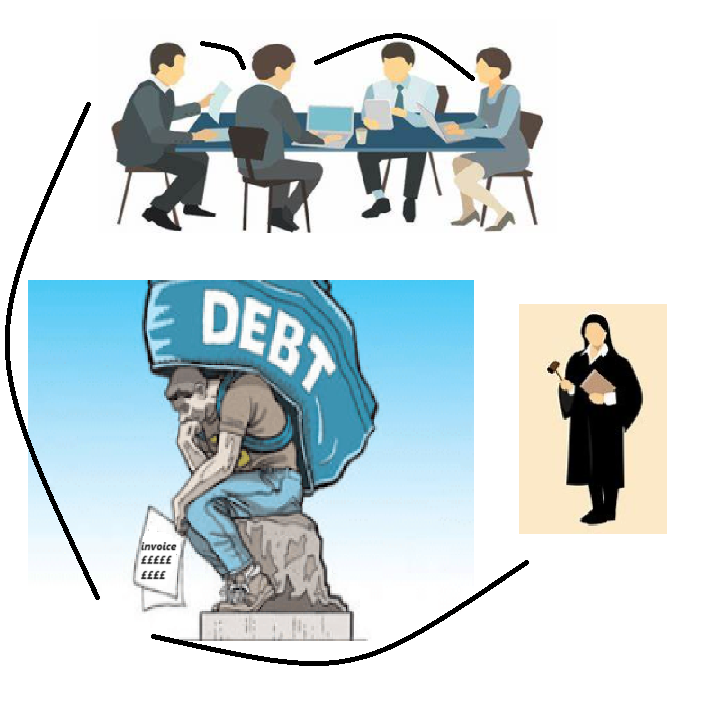Taylors Industrial Flooring Ltd v M and H Plant Hire Ltd, 1990 BCLC 216, Court of Appeal
Citation:Taylors Industrial Flooring Ltd v M and H Plant Hire Ltd, 1990 BCLC 216, Court of Appeal
Rule of thumb: Where an invoice for a large bill above the statutory minimum to liquidate an organisation has been sent, and there is no response to dispute this, can the creditor get a winding up petition without notice? Yes. Where a party does not respond to this statutory notice to dispute the bill however, and the bill is above the statutory considered a minor amount, then a winding up insolvency petition could also be issued to the person without notice – notice does not have to be provided as this would give the organisation notice to start getting rid of its assets at low values.
Judgment:
‘If there is a debt which to an extent above the statutory minimum is indisputable, then a (winding up) petition can validly be presented even if the debt as claimed the petition is for a larger sum, part of which is disputed... There is no requirement that a creditor must serve a statutory demand. The practice has for a long time been that the vast majority of creditors who seek to petition for the winding up of companies do not serve statutory demands.... If, after the petition has been presented, a winding-up order is made, the winding up is only treated as commencing at the date of the presentation of the petition; thus, if the creditor takes the course of serving a statutory demand, it would be giving the company an extra three weeks grace in which such as assets as the company may have may be dissipated in attempting to keep an insolvent business afloat, or may be absorbed into the security of a debenture holder bank... The first limb is that if a debt is due and an invoice sent and the debt is not disputed, then the failure of the debtor company to pay its debt is itself evidence of inability to pay... The second point is that the reason for non-payment has to be substantial. It is not enough if a thoroughly bad reason is put forward honestly...’

Warning: This is not professional legal advice. This is not professional legal education advice. Please obtain professional guidance before embarking on any legal course of action. This is just an interpretation of a Judgment by persons of legal insight & varying levels of legal specialism, experience & expertise. Please read the Judgment yourself and form your own interpretation of it with professional assistance.

